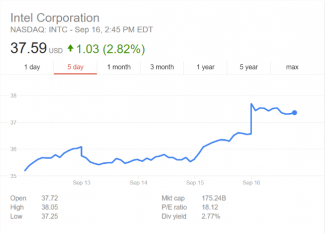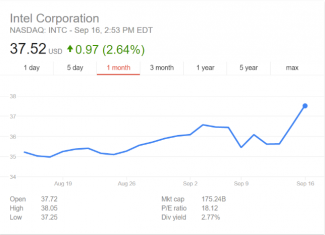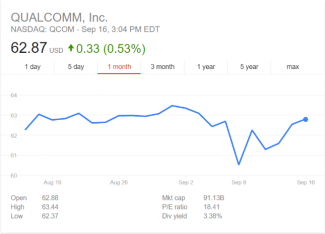The iPhone 7 has so far been touted as a win for Intel, which is providing mobile baseband chips for the first time. But as more details come to light about the flagship's chipset, the picture begins to look more mixed for the chip manufacturer.
The Verge noted Friday that the iPhone 7's A10 Fusion chip is impressively powerful, so much so that it could theoretically begin eating into Intel's market share.
Apple's new chip isn't just outpacing its smartphone rivals. Its single core performance is actively rivaling some of Intel's laptop CPU's.
@gruber Grain of salt and all, but Geekbench has the iPhone 7 beating the $6500 12-core Mac Pro in single-thread. pic.twitter.com/DFQoULZ15G
— Matt Mariska (@MattMariska) September 15, 2016
That spells the possibility that Apple could one day put its A chips – perhaps even the A10 – in a laptop, a big change for Intel after dominating the desktop CPU market for so many years.
But regardless of whether that ever comes to pass, getting a CPU this powerful in a mobile device is a big deal. Attention is steadily shifting from desktop to mobile computing, and Apple's chips are remaining superior in that segment.
Intel could not be reached for comment on the potential competition.
If these numbers are worrying Intel, however, the market's not showing it. Indeed, Intel stocks spiked as the market opened on Friday – leaving enough time for investors to see the more detailed information about the iPhone 7's specifications.


That may be boosting confidence, as the Journal's report was based upon the clue that some iPhone 7 models wouldn't employ CDMA technology. Qualcomm, which had up until now been providing all the iPhone's baseband chips, consistently uses CDMA, which meant those models couldn't be using Qualcomm chips.
For Qualcomm's part, the market appears to have mostly rebounded from the loss of those chips after a brief plunge on September 9.

Related articles:
Intel will supply up to half of iPhone 7 baseband chips, breaking Qualcomm's hold
The iPhone 7 offers some unexpected new feature